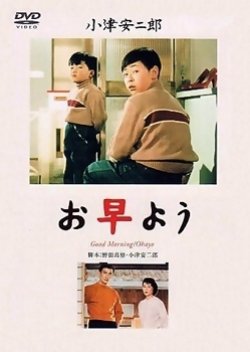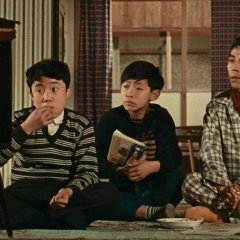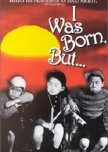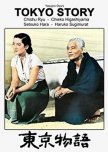- Português (Brasil)
- English
- magyar / magyar nyelv
- dansk
- Título original: お早よう
- Também conhecido como: Good Morning , Ohayo , Ohayou
- Roteirista e Diretor: Ozu Yasujiro
- Roteirista: Noda Kogo
- Gêneros: Comédia, Vida, Juventude, Drama
Onde assistir Bom Dia
Elenco e Créditos
- Ryu Chishu Papel Principal
- Miyake KunikoHayashi TamikoPapel Principal
- Shitara KojiHayashi MinoruPapel Principal
- Sada KeijiFukui Heiichiro [English tutor]Papel Secundário
- Kuga YoshikoArita Setsuko [Minoru and Isamu's aunt]Papel Secundário
- Tono EijiroTomizawa HiroshiPapel Secundário
Resenhas

Esta resenha pode conter spoilers
A small neighborhood in Tokyo is turned upside down when two little boys take a vow of silence because they want a television set. Of course, that's not all that's going on with the adult neighbors. Each family unit is facing their own challenges whether retirement is nearing, or a father can't find a job, or when the gossip generated from the have and have nots tears at the fragile fabric of relationships held together by the traditional greeting of "good morning".The focus of the story is two little boys who visit a neighbor's house to watch sumo wrestling on their TV. The neighbors are deemed unseemly, read different, and the boys are forbidden from visiting them anymore. When the boys hold their ground demanding a television the father tells them to be quiet and they decide to take a vow of silence.
The father is afraid that having a television in the house will breed idiocy by drowning out small talk which is the "lubricant" of society. The boys view small talk as idiocy. And around and round they go. The boys' vow of silence creates ripples of discord in the neighborhood when they neglect the customary "good morning" setting up another wave of gossip.
You can see in the English lessons and television, the creeping American influence and Western pressure on the families. The television is not the only problem, a neighbor who buys a washing machine is judged for spending money on a convenience. The shunned family with the television feels compelled to move. The movie not only displays a generational conflict, but a cultural conflict as well.
The small talk the adults value so dearly where love declarations are made through a banal conversation about the weather, also bury resentments, envy and fears. No one questions drinking as a means of escape, or cruel gossiping.
Good Morning was bolstered by the young actors' sweet performances in their silent war. A spare, gently comedic slice of life film, showcasing a cast of well-developed minor characters dealing with everyday problems and a changing world was quite entertaining.
Esta resenha foi útil para você?

Ozu's most accessible film; a great first film to start with
Yasujiro Ozu, along with his writing buddy, Kogo Noda, collaborated on 27 films. Ozu, alone, made 53 feature films. Good Morning was Ozu's 49th film, and 2nd film in color. This is one of his 'later' films.Good Morning (1959) is easily one of the most accessible films for the new Ozu filmgoer. It is in audio, color, and, at 94 min. run time, very digestible. Compared to other Ozu films, it feels less 'heavy', quicker in pace, and is visually stimulating; older Ozu films (especially the black and white films) have a more static visual presentation. There's lots of explicit and implicit comedy in Good Morning, and the music is more 'modern' compared to earlier films. Furthermore, Good Morning leans heavily on the performance of children, including a cute young child who does an incredible acting job. There's something to like in this film for everyone. This is a fine film to watch for a family with children.
As with all Ozu films, this is a family drama. The plot and themes cover the dynamics of an upper middle class household (father, mother and their two young sons). The film also explores the dynamics of neighborhood relations and intergenerational dynamics. The challenges of raising children are explored as are the differences in socioeconomic statuses of neighbors. Compared to many other Ozu films, which focus on adult characters, Good Morning features well-developed children characters. The children actors in this film, in fact, steal the show.
The portrayal of happy-go-lucky children in Good morning, may be a symbolic decision. In 1959, Japan would have had young children (age 1-15) with little to no living memory of WWII. Instead, the children of Good Morning are concerned with television, watching sumo and baseball, and having fun with friends. The adult parents, conversely, are consumed with work and rebuilding the nation from its WWII defeat; they seem too busy to be strict with their children for long, giving in to demands for consumer pleasures.
While this film may not be as 'emotional' or as 'deep' as other Ozu films, it is still a very thought provoking film. For myself, personally, this film made me want to read more about Japan's modern history.
Good morning is a very good place to start for the first-time Ozu filmgoer and is appropriate for children of middle-school reading ability.
Esta resenha foi útil para você?





















































